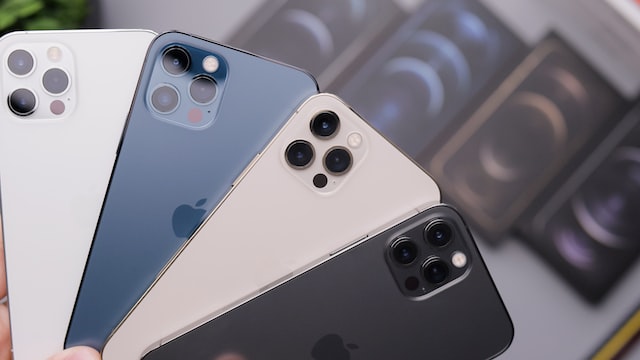iPhone Owners Report Latest iOS Update is Resurfacing Deleted Nudes

Introduction
In the ever-evolving landscape of mobile technology, updates are generally met with anticipation and excitement. They promise new features, enhanced security, and overall improvements to user experience. However, the latest iOS update from Apple has stirred a wave of concern among iPhone owners. Reports have emerged indicating that the update is causing previously deleted photos, including sensitive and personal images, to resurface unexpectedly.
The Incident
A growing number of iPhone users have taken to social media and online forums to voice their concerns regarding the latest iOS update. According to these users, photos that had been deleted long ago, including private and intimate images, are reappearing in their photo libraries without any apparent action on their part.
User Experiences
One iPhone owner described her shock when she found intimate photos from over a year ago reappearing in her gallery after the update. Another user expressed frustration, noting that the reappeared photos were ones he had intentionally deleted to free up storage space and maintain privacy. These incidents are not isolated, as numerous similar reports have been documented across various platforms.
Potential Causes
While Apple has not officially commented on the issue, several theories have been proposed by tech experts and users alike. One possible cause could be related to the intricacies of how iOS handles data deletion and restoration. Here are a few hypotheses:
- iCloud Synchronization Glitches: iCloud, Apple’s cloud storage service, could be experiencing synchronization errors. These errors might cause previously deleted photos to reappear if the deletion status is not correctly synchronized across devices.
- Caching Issues: iOS might be improperly handling cached versions of photos. When the system updates, it could mistakenly restore these cached files to the user’s photo library.
- Database Reindexing: The update process may involve reindexing the device’s file system. During this reindexing, deleted files that are still physically present on the device’s storage could be erroneously flagged as active and restored to the photo library.
Security and Privacy Concerns
The resurfacing of deleted photos, especially those of a private or sensitive nature, raises significant privacy concerns. Users rely on their devices to manage personal data securely, and unexpected restoration of deleted content undermines this trust. It also brings into question the effectiveness of iOS’s data deletion mechanisms and whether they can be relied upon to permanently remove sensitive content.
Steps to Address the Issue
If you are an iPhone user experiencing this issue, there are several steps you can take:
- Check Recently Deleted Folder: Ensure that photos you intend to delete are also removed from the “Recently Deleted” folder in the Photos app.
- Manual Deletion: Manually review and delete unwanted photos again after the update.
- iCloud Settings: Verify your iCloud settings to ensure synchronization settings are correctly configured.
- Backup and Restore: As a more drastic measure, consider backing up your data, performing a factory reset, and then restoring your data to ensure the integrity of the deletion process.
- Contact Apple Support: Report the issue to Apple Support to get professional assistance and ensure the issue is logged for a potential fix in future updates.
Conclusion
The reports of deleted photos resurfacing after the latest iOS update underscore the complex nature of managing data on modern smartphones. While the exact cause of the issue remains unclear, it highlights the need for robust data handling and deletion processes. As is Apple investigating and addressing these concerns, users are advised to take precautionary measures to safeguard their privacy and data. The incident serves as a reminder of the importance of vigilante data management in the digital age.




